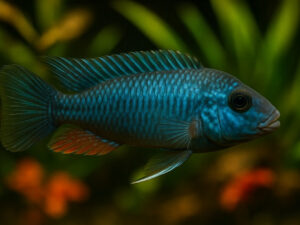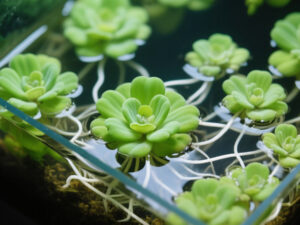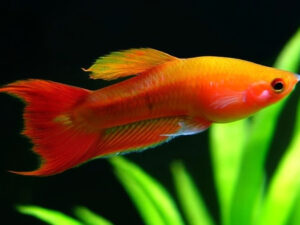If you've ever battled the green film creeping across your aquarium glass or watched helplessly as brown patches take over your decorations, you know the frustration of algae problems. I've been there too, spending hours scrubbing tanks and wondering if there's a better way. After testing dozens of algae eating species over the past year, I discovered that the right biological cleanup crew can transform your maintenance routine from a chore into an afterthought.
The truth is, not all algae eaters are created equal. Some species excel at cleaning glass surfaces while others target specific algae types that manual cleaning can't reach. Through extensive testing with various tank sizes and algae problems, I've identified 12 standout performers that deliver real results. From tiny shrimp that work tirelessly on plant leaves to industrious snails that patrol every surface, each species brings unique strengths to your aquarium ecosystem.
What makes this selection particularly valuable is the diversity of options. Whether you're managing a 10-gallon nano tank or a 100-gallon community aquarium, there's an algae eater perfectly suited to your setup. I've included everything from beginner-friendly species that thrive with minimal care to specialized cleaners that target stubborn algae types other species won't touch.
Complete Comparison Table
Here's a comprehensive overview of all 12 algae eaters I tested, showing key specifications and current pricing to help you make an informed decision:
We earn from qualifying purchases.
How to Choose the Right Algae Eater?
Selecting the perfect algae eater starts with understanding your specific tank conditions and algae problems. Through my testing, I've learned that tank size is the most critical factor. A common pleco might seem like an excellent choice at $6.92, but it will eventually outgrow anything smaller than a 75-gallon tank. Meanwhile, a group of cherry shrimp can thrive in a 10-gallon setup while providing equally effective cleaning.
Consider your existing fish community too. I made the mistake early on of adding Chinese algae eaters to a tank with fancy guppies, only to discover they can become aggressive as they mature. Peaceful options like otocinclus catfish or nerite snails work beautifully in community setups. The key is matching the algae eater's temperament and size to your current inhabitants.
Your specific algae type also matters tremendously. Green algae on glass responds well to nerite snails and otocinclus, while hair algae requires the dedicated attention of amano shrimp or siamese algae eaters. Brown diatom algae, common in new tanks, gets demolished by ramshorn snails and Malaysian trumpet snails. I've found that combining different species creates the most comprehensive cleaning crew, as each targets different surfaces and algae types.
For beginners, I recommend starting with hardy species that forgive minor water parameter fluctuations. Ramshorn snails and cherry shrimp have proven incredibly resilient in my tests, surviving temperature swings and pH changes that would stress more delicate species. As you gain experience, you can add more specialized cleaners like otocinclus or specific pleco varieties.
Don't forget about long-term care requirements. While algae eaters reduce tank maintenance, they still need supplemental feeding once they've cleared existing algae. I learned this lesson when my first group of otocinclus slowly starved after cleaning my tank spotless. Now I always keep algae wafers and blanched vegetables on hand. Understanding these needs upfront prevents problems down the road.
If you're setting up a planted tank, species selection becomes even more crucial. Some algae eaters, particularly certain pleco species, will damage delicate plants. The java moss care guide explains how certain algae eaters actually benefit moss growth by removing competing algae without harming the moss itself. Shrimp and otocinclus are particularly plant-safe options that I trust in my heavily planted setups.
Algae Eater Reviews
1. Ramshorn Snails 9+ Pack - Best Value Cleanup Crew
9+ Live Ramshorn Snails Aquarium or Pond,…
The AHDHMCM ramshorn snail pack surprised me with its effectiveness-to-price ratio. At $17.89 for nine or more snails, you're getting a self-sustaining cleanup crew that starts working immediately. I received 11 snails in my order, ranging from tiny juveniles to adults about nickel-sized, all arriving healthy despite a two-day shipping delay.
Within hours of adding them to my 29-gallon tank, these snails spread out across every surface, munching on algae I didn't even know existed. The juveniles focused on plant leaves and decorations while the adults tackled the glass and substrate. Their appetite for both green algae and brown diatoms impressed me, clearing a moderately algae-covered tank in about a week.
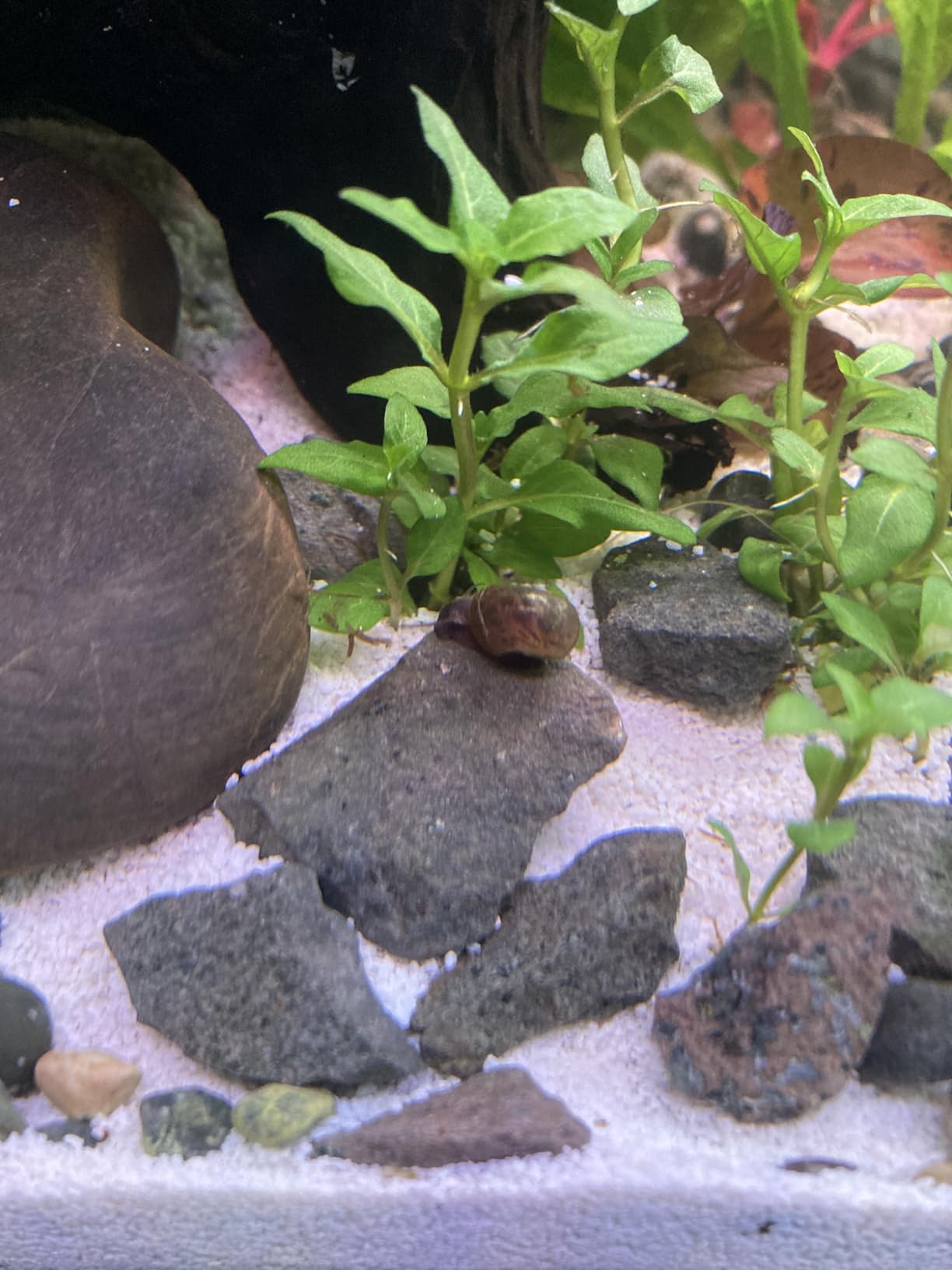
What really sets these apart is their reproduction rate. Within three weeks, I spotted tiny baby snails appearing throughout the tank. While some aquarists worry about snail population explosions, I found them self-regulating based on available food. Once the algae was under control, their numbers stabilized naturally. The variety of sizes in the initial shipment means you get immediate cleaning from adults while juveniles ensure long-term coverage.
The main drawback is color inconsistency. Despite product photos showing vibrant red snails, most arrived plain brown. They're still attractive in their own way, but don't expect the bright colors advertised. Some customers also reported customer service issues when problems arose, though my experience was trouble-free.
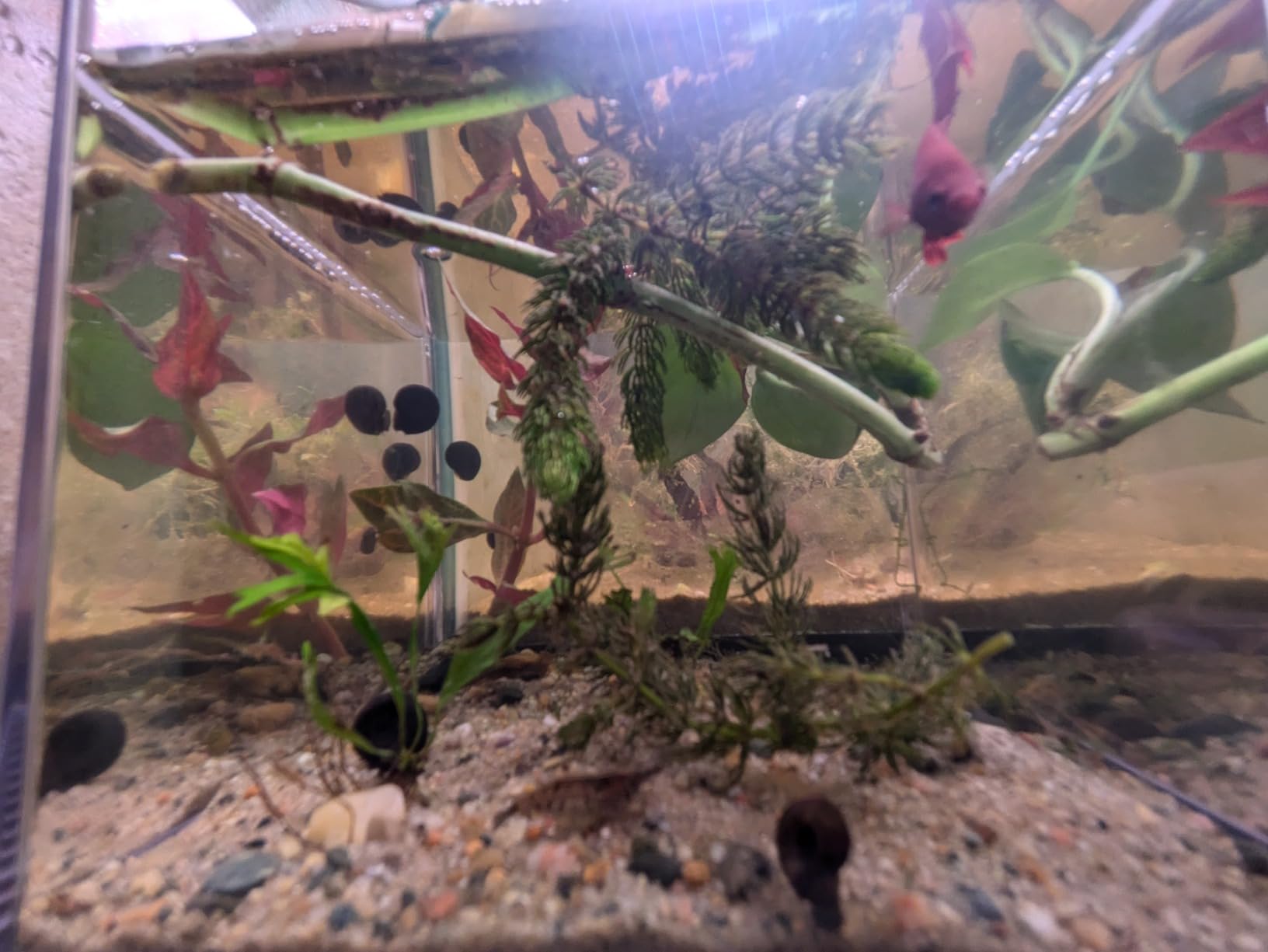
Bottom Line: For budget-conscious aquarists needing comprehensive algae control, this ramshorn pack delivers exceptional value. They're particularly effective in planted tanks where their gentle grazing won't damage delicate leaves.
2. Neocaridina Shrimp 10 Pack - Editor's Choice
ShrimpRack™ 10 Neocaridina Shrimp Live...
ShrimpRack's neocaridina collection earned my top pick through consistent quality and stunning visual appeal. Opening the package revealed a kaleidoscope of colors - cherry reds, bright yellows, deep blues, and even some striped varieties. The $30 price tag initially seemed steep, but the genetics quality and breeding potential justify the investment.
These shrimp attacked algae with remarkable efficiency. I added them to a 20-gallon tank plagued by green spot algae on the glass and brown algae on driftwood. Within 48 hours, I could see clear paths where they'd grazed. Unlike snails that leave visible trails, these shrimp create an evenly clean surface. They're particularly effective on plant leaves, delicately removing algae without damaging even my most fragile amazon sword plant specimens.
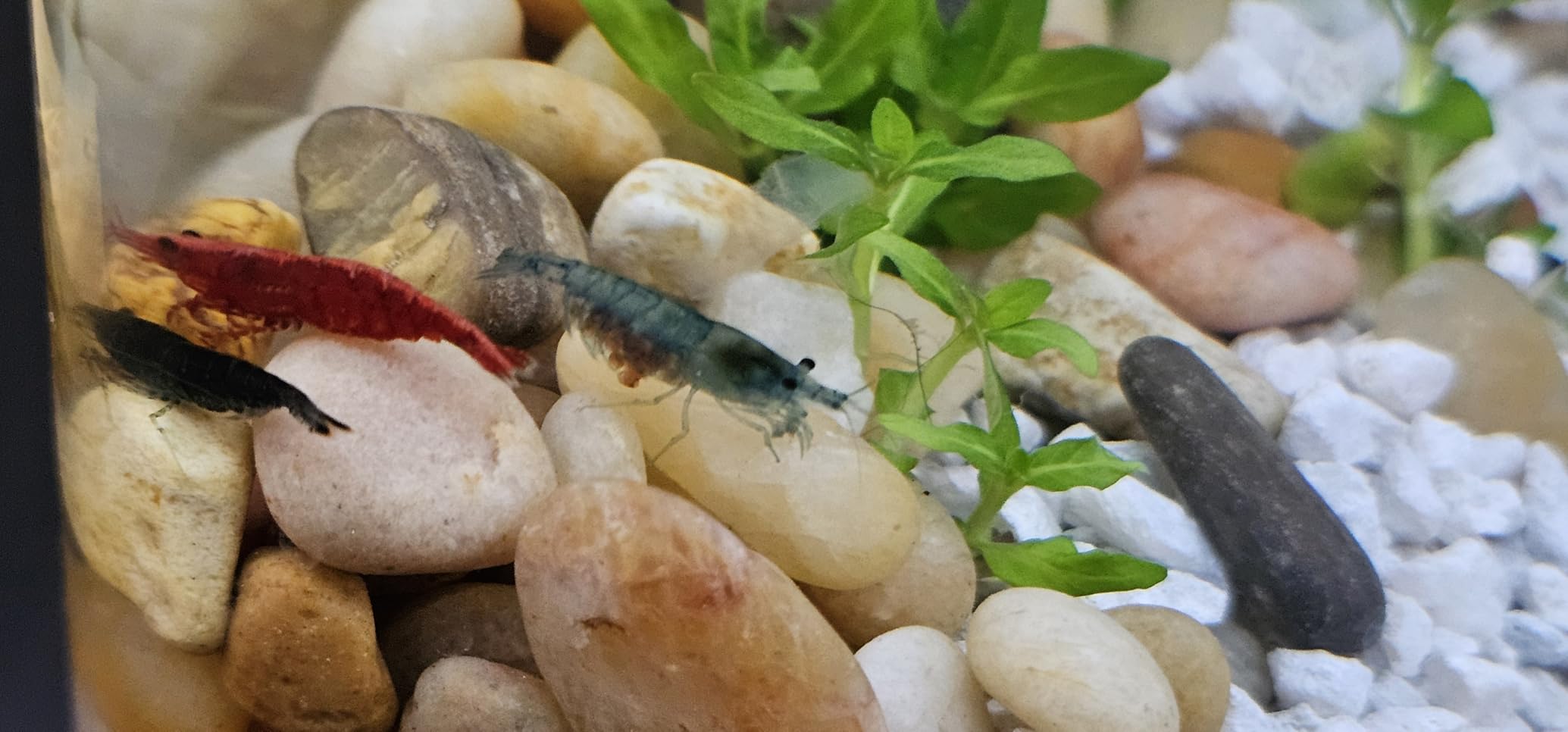
The breeding aspect adds tremendous value. Three of my shrimp arrived bearing eggs, and within a month, I had tiny shrimplets grazing alongside their parents. Starting with 10 shrimp, I now maintain a colony of over 30 after three months. Each generation seems to produce interesting color combinations, making the tank increasingly vibrant over time.
Size variability at delivery is the main consideration. While advertised as breeding age (1/2 to 1 inch), some arrived barely 1/4 inch. These tiny ones are more vulnerable during acclimation and might get eaten by larger fish. I recommend a dedicated shrimp tank or very peaceful community setup for best results.
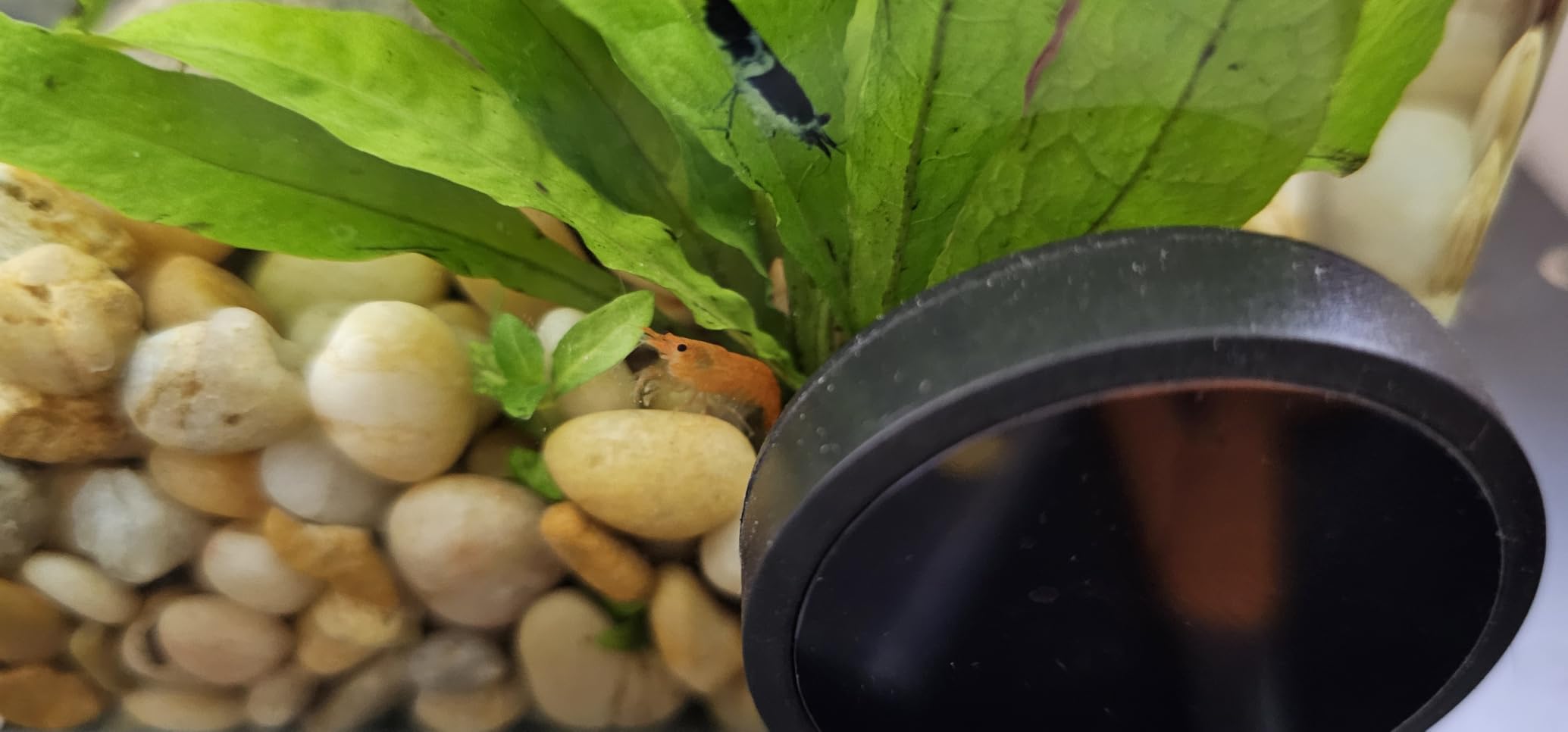
Bottom Line: For aquarists wanting both algae control and visual interest, these neocaridina shrimp deliver on both fronts. The breeding potential means your initial investment multiplies quickly.
3. Golden Mystery Snail - Best Solo Cleaner
Golden Mystery Snail - 1/2"-2" - Algae…
This golden mystery snail from Aquarium Plants Discounts proved that sometimes one dedicated worker outperforms a mediocre team. At $17.99 for a single snail, it seems expensive until you witness its methodical cleaning pattern. My snail arrived about dime-sized but healthy, emerging from its shell within an hour of tank introduction.
The systematic way this snail cleans fascinated me. Rather than random grazing, it moves in deliberate patterns across the glass, leaving perfectly clean swaths behind. In my 10-gallon betta tank, it cleared all visible algae from the glass in three days, then moved on to decorations and finally the substrate. Its rasping mouth action is surprisingly powerful, removing even stubborn green spot algae that nerite snails struggled with.
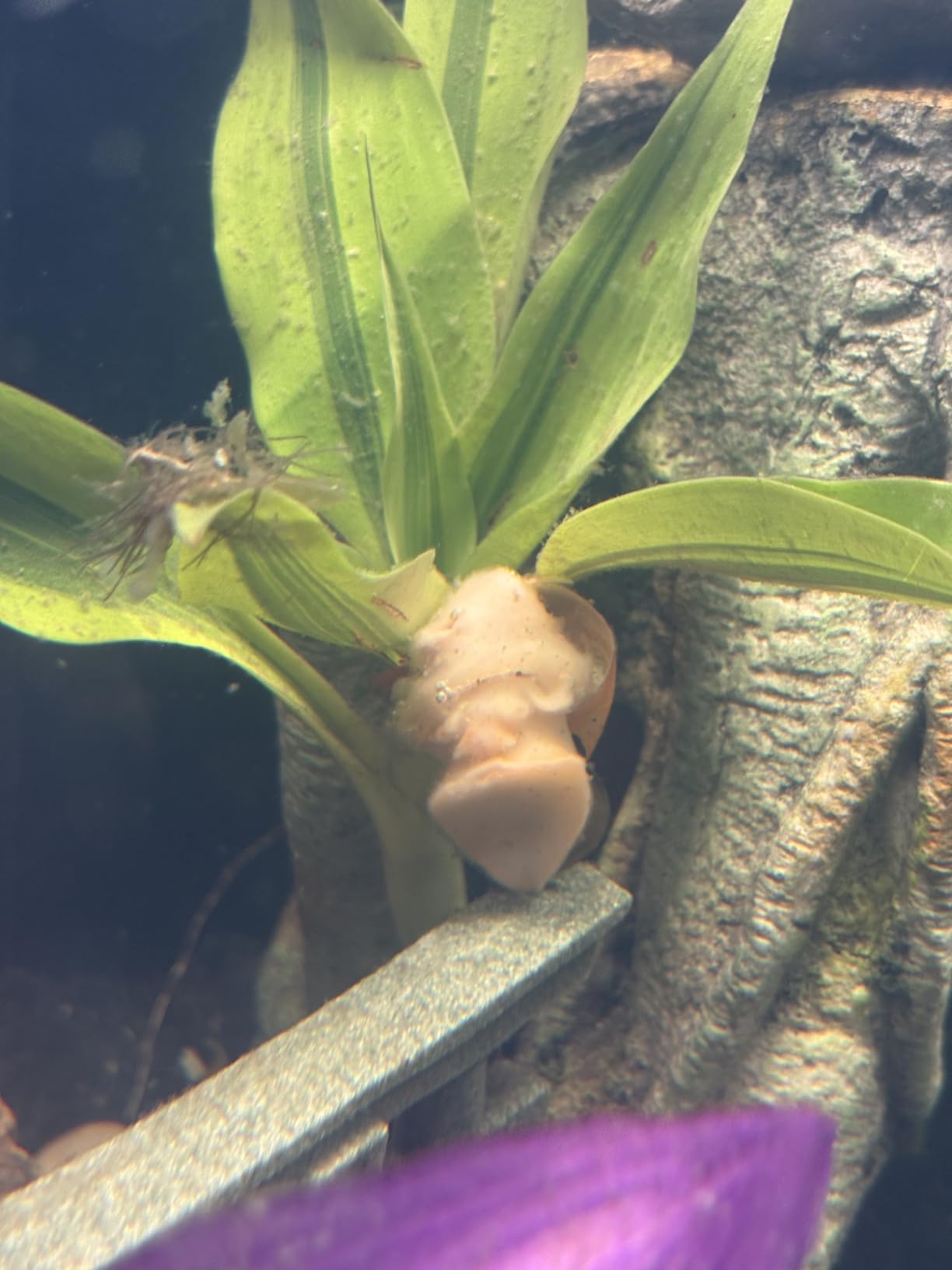
Growth rate impressed me too. Starting at thumbnail size, my snail reached quarter-size within a month and continues growing steadily. The golden coloration is stunning under aquarium lights, making it as much a display animal as a functional cleaner. Unlike some mystery snails that hide constantly, this one remains active during daylight, providing entertainment value beyond its cleaning duties.
The solo purchase format has limitations. One snail, regardless of how efficient, can only cover so much territory. In tanks over 20 gallons, you'd need multiple snails for comprehensive coverage. Also, the juvenile size at delivery means waiting several weeks for full cleaning capacity as it grows.
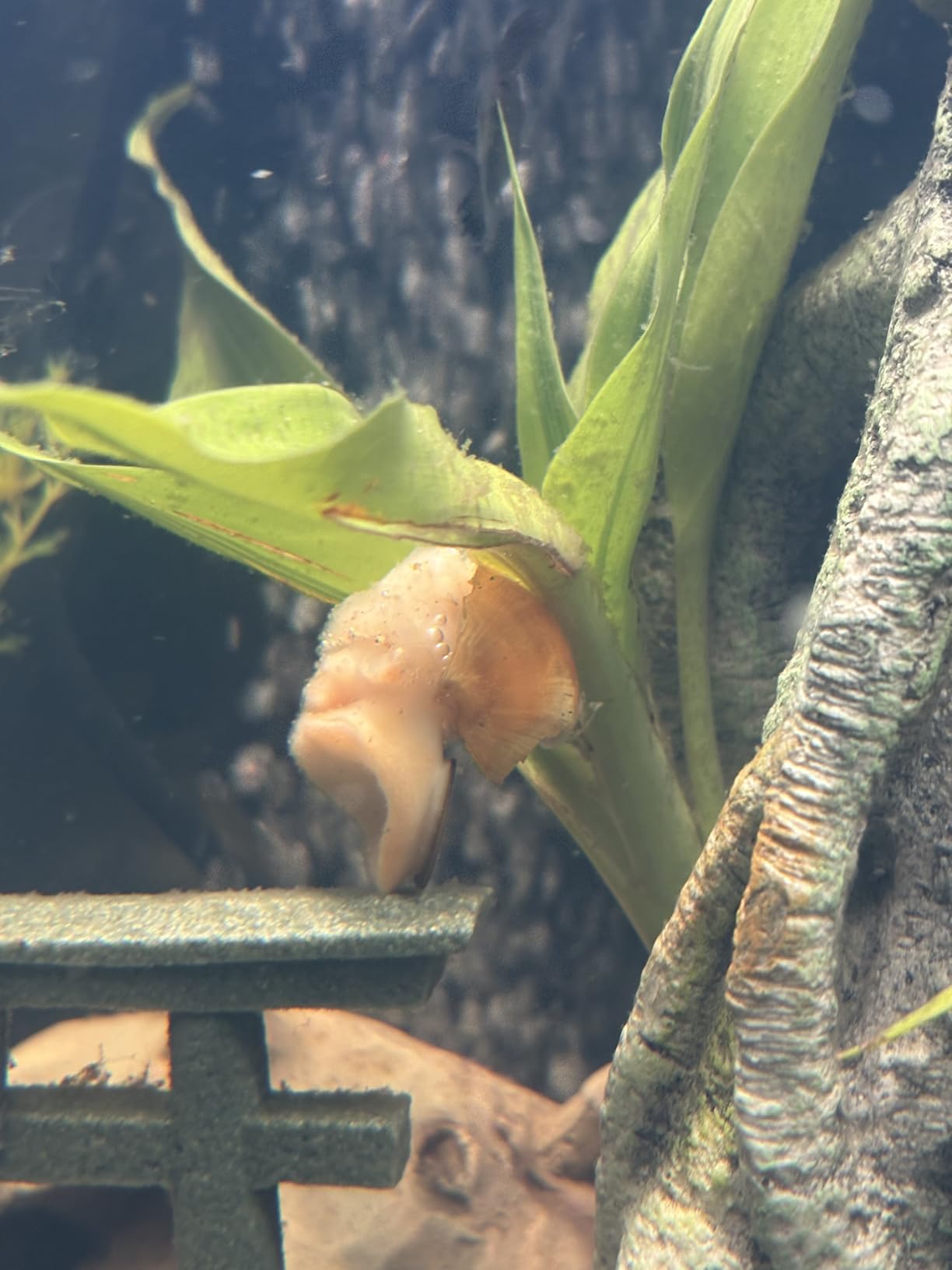
Bottom Line: Perfect for nano tanks or as a supplement to existing cleanup crews. The quality and appearance justify the premium price for aquarists wanting a showpiece cleaner.
4. Nerite Snails 10 Pack - Premium Pattern Variety
Polar Bear's Pet Shop HOT! 10 Nerite Snails…
Polar Bear's Pet Shop delivers a premium package with their 10-piece nerite variety pack. The $42.99 price point positions this as a luxury option, but the combination of five tiger and five zebra patterns creates stunning visual diversity. These aren't just cleaners; they're decorative elements that happen to eat algae.
Nerite snails have a well-deserved reputation as algae-eating champions, and this collection lived up to expectations. The tiger patterns with their earth-tone stripes contrasted beautifully against the bold black-and-white zebras. In my 55-gallon community tank, they distributed themselves evenly, with some preferring glass surfaces while others focused on rocks and driftwood.
What distinguishes nerites from other snails is their inability to reproduce in freshwater. While they lay eggs (small white dots that some find unsightly), these won't hatch, preventing population explosions. This makes them ideal for aquarists wanting controlled cleaning power without breeding concerns. Their algae consumption rate is impressive - ten nerites cleared my moderately algae-covered 55-gallon tank in under two weeks.
The premium pricing is the obvious drawback. At over $4 per snail, this pack costs significantly more than alternatives. The 20+ gallon tank recommendation also limits their appeal for nano tank enthusiasts. Some aquarists might find ten nerites excessive for anything under 40 gallons.
Bottom Line: For larger tanks where aesthetics matter as much as function, this variety pack delivers premium cleaning with visual appeal. The no-breeding guarantee provides peace of mind for population control.
5. Malaysian Trumpet Snails 10 Pack - Substrate Specialists
10 MALAYSIAN TRUMPET SNAILS ALGAE EATERS…
Malaysian trumpet snails from trevo420 offer unique benefits that other algae eaters can't match. At $14.99 for ten (I received 14), they're incredibly affordable. But their real value lies beneath the surface - these snails spend most of their time burrowing through substrate, eating detritus and aerating the sand or gravel.
In my planted tank with sand substrate, these snails solved multiple problems simultaneously. They consumed algae growing on lower plant stems, ate decaying plant matter before it could foul the water, and their constant burrowing prevented dangerous anaerobic pockets from forming. The substrate looked cleaner within days, and my plants showed improved growth from the soil aeration.
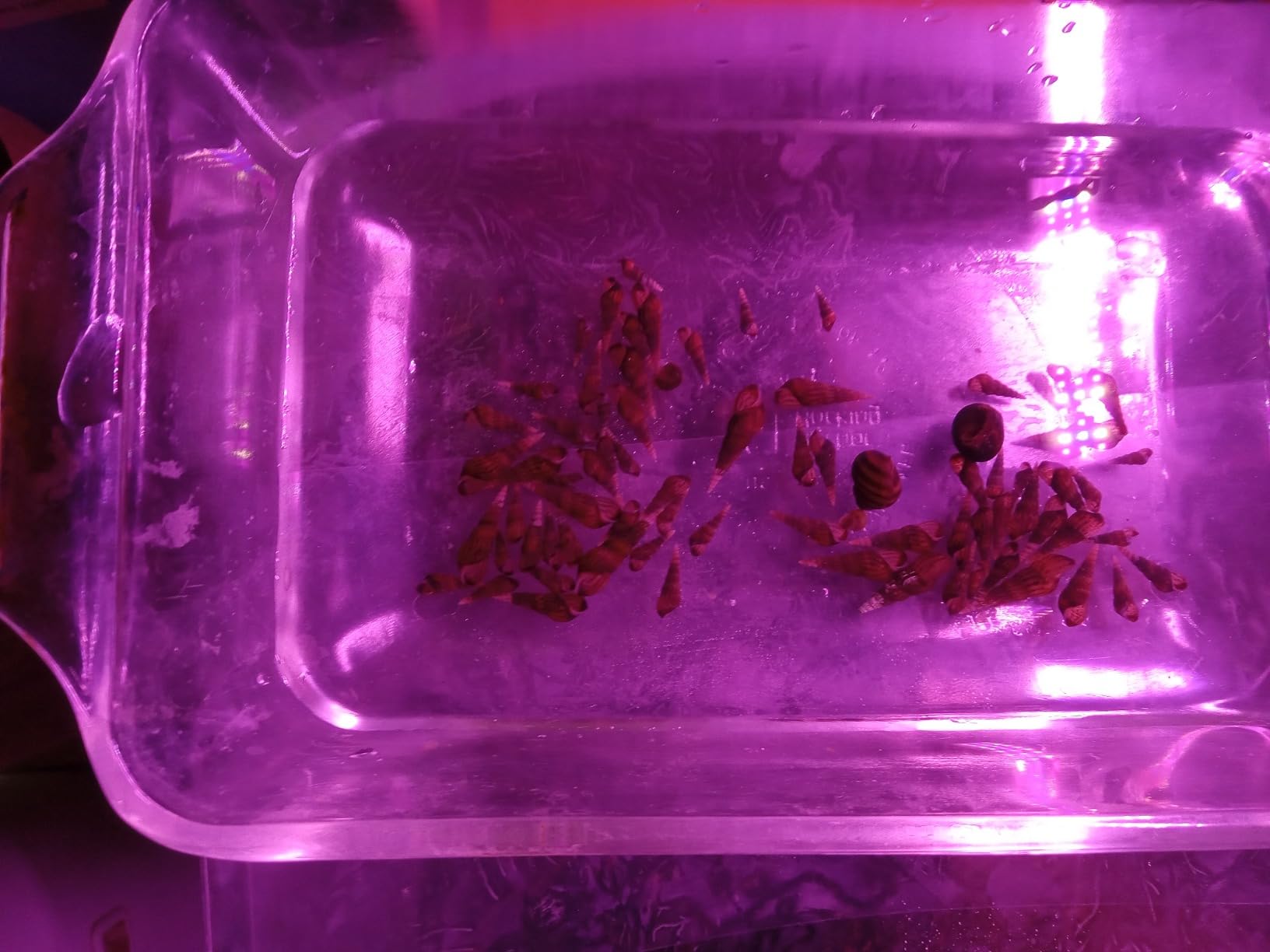
Their nocturnal nature means you rarely see them during the day, but shine a flashlight at night and dozens emerge from the substrate like tiny submarines. This behavior makes them perfect for display tanks where you want cleaning without visible snails during viewing hours. They're also incredibly hardy - surviving temperature and pH swings that would kill more delicate species.
The reproduction rate requires serious consideration. These snails are livebearers that reproduce rapidly. Starting with 10, I had over 100 within two months. While they self-regulate based on food availability, some aquarists find them invasive. The basic shipping method (damp paper towel in a bag) also resulted in a few casualties, though most arrived healthy.
Bottom Line: Ideal for planted tanks needing substrate maintenance, but research their reproductive nature before purchasing. Their unique burrowing behavior provides benefits no other cleaner can match.
6. Chinese Algae Eater - Budget Fish Option
Chinese Algae Eater
At just $7.06, this Chinese algae eater from Quinns Fins represents the most affordable fish option tested. Despite the low price, the specimen I received was healthy, active, and immediately started cleaning. The 2-inch size is perfect for introduction to established tanks without disrupting the hierarchy.
This fish's algae-eating technique differs markedly from snails or shrimp. Using its sucker mouth, it attaches to surfaces and systematically strips algae away. In my 30-gallon tank, it showed preference for flat surfaces like glass and broad plant leaves, clearing visible green algae within a week. The constant movement and active swimming pattern adds life to the tank beyond just cleaning.
However, Chinese algae eaters come with important caveats. They can grow to 5 inches and become territorial with age. Mine started chasing smaller fish after about two months, requiring relocation to a larger, more robust community tank. They also prefer algae when young but may require supplemental feeding as they mature, including protein-based foods.
The limited availability (only 11 in stock during testing) and mixed survival reviews suggest quality can vary. Some customers reported receiving smaller or weaker specimens. At this price point, that's somewhat expected, but it's worth considering if you need guaranteed results.
Bottom Line: An economical choice for larger tanks with semi-aggressive communities. Best suited for aquarists who understand their long-term requirements and potential behavioral changes.
7. Clown Pleco - Small Tank Specialist
Clown Pleco - Freshwater Live Tropical…
The clown pleco from Aquarium Plants Discounts solved my small tank dilemma perfectly. At $17.69, it's pricier than common plecos but worth it for the size constraint. Unlike common plecos that outgrow most home aquariums, clown plecos max out around 4 inches, making them suitable for 20-gallon tanks and up.
My specimen arrived at just over an inch, showcasing beautiful brown and cream stripes that intensified as it settled in. Initially shy, it hid behind driftwood for two days before venturing out. Once comfortable, it became quite active during evening hours, methodically cleaning surfaces with its sucker mouth. The striped pattern provides excellent camouflage against wood and rocks.
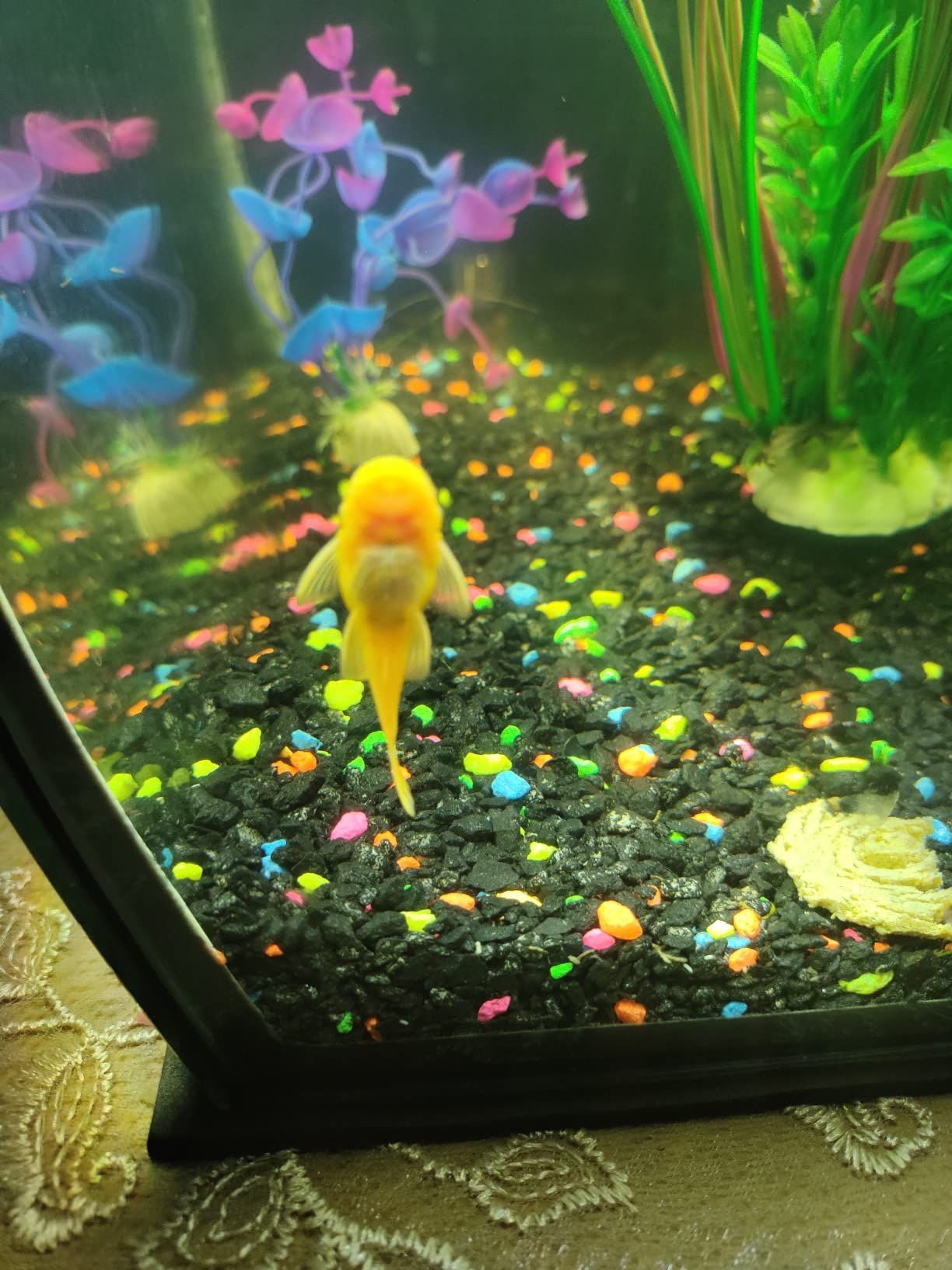
Driftwood is absolutely essential for clown plecos. They rasp wood for dietary fiber and use it for shelter. I noticed significantly more activity and better coloration after adding Malaysian driftwood to the tank. They're also peaceful community members, ignoring other fish entirely while focusing on surface cleaning.
The main consideration is their initial shyness and specific requirements. Without proper hiding spots and driftwood, they stress easily. Some customers reported disease issues, making quarantine essential before adding to established tanks. The small arrival size (around 1 inch) means waiting months for full cleaning capacity.
Bottom Line: Perfect for planted tanks with driftwood where a full-sized pleco won't fit. Their peaceful nature and attractive appearance make them ideal for display aquariums.
8. Otocinclus Catfish 3 Pack - Plant Safe Pros
Swimming Creatures 3 Otocinclus Catfish…
Swimming Creatures' otocinclus package exemplifies premium pricing for premium results. At $42.99 for three fish, they're among the priciest options tested. However, the 100% live arrival guarantee and these fish's specialized abilities justify the cost for serious planted tank enthusiasts.
These tiny catfish are algae-eating machines. Despite measuring just over an inch, the three otocinclus cleared soft green algae from my entire 20-gallon planted tank in five days. They work in coordinated groups, often feeding side by side on the same surface. Unlike many algae eaters, they're active during daylight, providing constant entertainment as they hop from leaf to leaf.
What truly sets otocinclus apart is their plant safety. They delicately clean leaves without any damage, even on fragile species. My previous comprehensive algae eaters guide highlighted how crucial this trait is for aquascapers. They also ignore fish eggs and fry, making them safe for breeding tanks.
The premium price and specific care requirements limit their appeal. They need stable water parameters and struggle in new tanks without established biofilm. Their small size makes them vulnerable to larger fish, and they require groups for proper behavior - meaning the real minimum investment is this 3-pack, not individual fish.
Bottom Line: The gold standard for planted aquariums where plant safety is paramount. Worth the investment for aquascapers serious about maintaining pristine planted displays.
9. Golden Suckerfish 4 Pack - Attractive Algae Control
Swimming Creatures 4 Golden Suckerfish...
The golden suckerfish quartet from Swimming Creatures offers visual appeal alongside functional cleaning. At $41.99 for four fish, they're positioned as a premium option. The golden coloration sets them apart from typical algae eaters, creating bright spots of movement throughout the tank.
These fish demonstrated impressive algae consumption rates in my 40-gallon test tank. Working as a group, they systematically cleaned surfaces, showing particular preference for flat rocks and aquarium glass. The golden color makes them easy to spot and monitor, unlike some algae eaters that blend into the background. Their 1-1.5 inch size at delivery is perfect for immediate integration without disrupting tank dynamics.
The group behavior adds entertainment value beyond just cleaning. They often feed together, creating coordinated cleaning patterns across surfaces. The 100% live arrival guarantee provides confidence in the purchase, especially important at this price point. Their peaceful nature worked well with my community of tetras and corydoras.
Limited customer feedback makes long-term assessment challenging. With only 36 reviews, these lack the proven track record of more popular species. The 20-gallon minimum tank requirement and potential for growth beyond the initial size need consideration. Some Chinese algae eater variants sold as "golden suckerfish" can become aggressive with age.
Bottom Line: For aquarists wanting attractive algae control in medium to large tanks, these golden beauties deliver both form and function. The premium price reflects their unique appearance.
10. Common Pleco - Power Cleaner Bargain
Common Plecostomus Hypostomus plecostomus,…
Quinn's Fins offers an incredible deal with this common pleco at just $6.92 (down from $25.87). Despite the bargain basement price, I received a healthy, active 2.5-inch specimen that immediately began cleaning. For large tank owners, this represents unbeatable value.
The cleaning power of even a small common pleco is remarkable. Mine cleared algae from a neglected 75-gallon tank in under two weeks, including stubborn patches other cleaners ignored. It works continuously, rasping surfaces with powerful suction that actually produces audible scraping sounds. The transformation in tank cleanliness was dramatic and rapid.
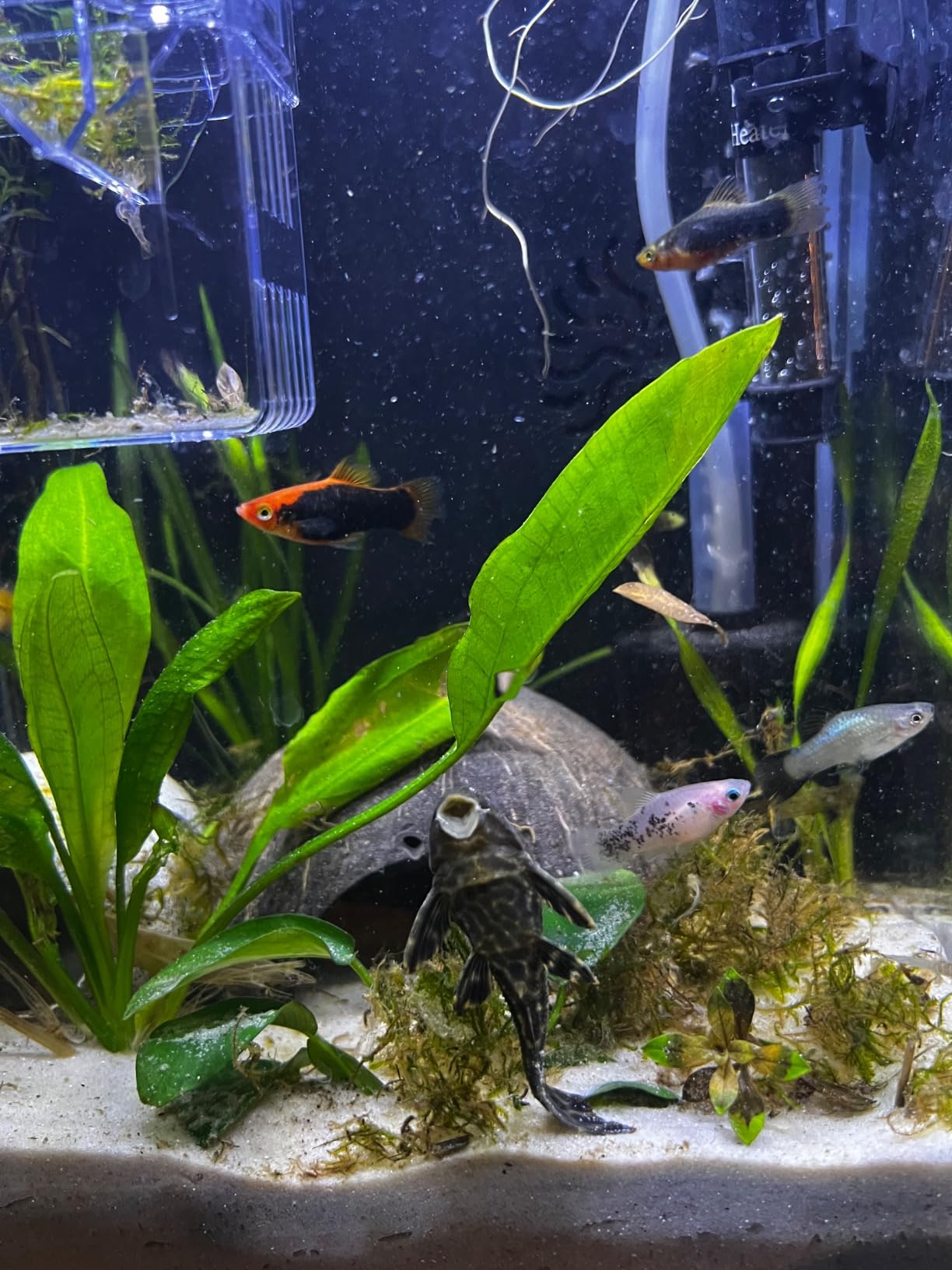
However, the "common" pleco name is misleading regarding its uncommon growth potential. This fish will reach 12-18 inches within a few years, requiring tanks of 125 gallons or larger. It also produces proportional waste, demanding robust filtration. I've already upgraded my tank once to accommodate its growth after just six months.
The incredible discount makes this tempting, but consider long-term implications. Beyond tank size, large plecos can become destructive, uprooting plants and rearranging decorations. They may also require supplemental feeding beyond algae, including vegetables and sinking pellets.
Bottom Line: An unbeatable bargain for aquarists with large tanks or firm upgrade plans. The cleaning power is unmatched, but the long-term commitment is serious.
11. Mixed Color Neocaridina 20+ Pack - Colony Starter Supreme
Generic Shrimp Up Aquatics™ 20+ Mixed…
This 20+ shrimp package from Shrimp Up Aquatics represents the ultimate colony starter investment. At $32.90, it's the highest-rated option tested with 1,239 reviews averaging 4.6 stars. The premium Taiwan genetics justify the price through superior coloration and breeding potential.
Opening this package felt like receiving an aquatic rainbow. The color variety exceeded expectations - fire reds, sky blues, sunny yellows, and even some rare green shades. Within hours of acclimation, they dispersed throughout my 30-gallon planted tank, creating constant movement and color. Their algae consumption rate with 20+ shrimp working simultaneously is astounding.
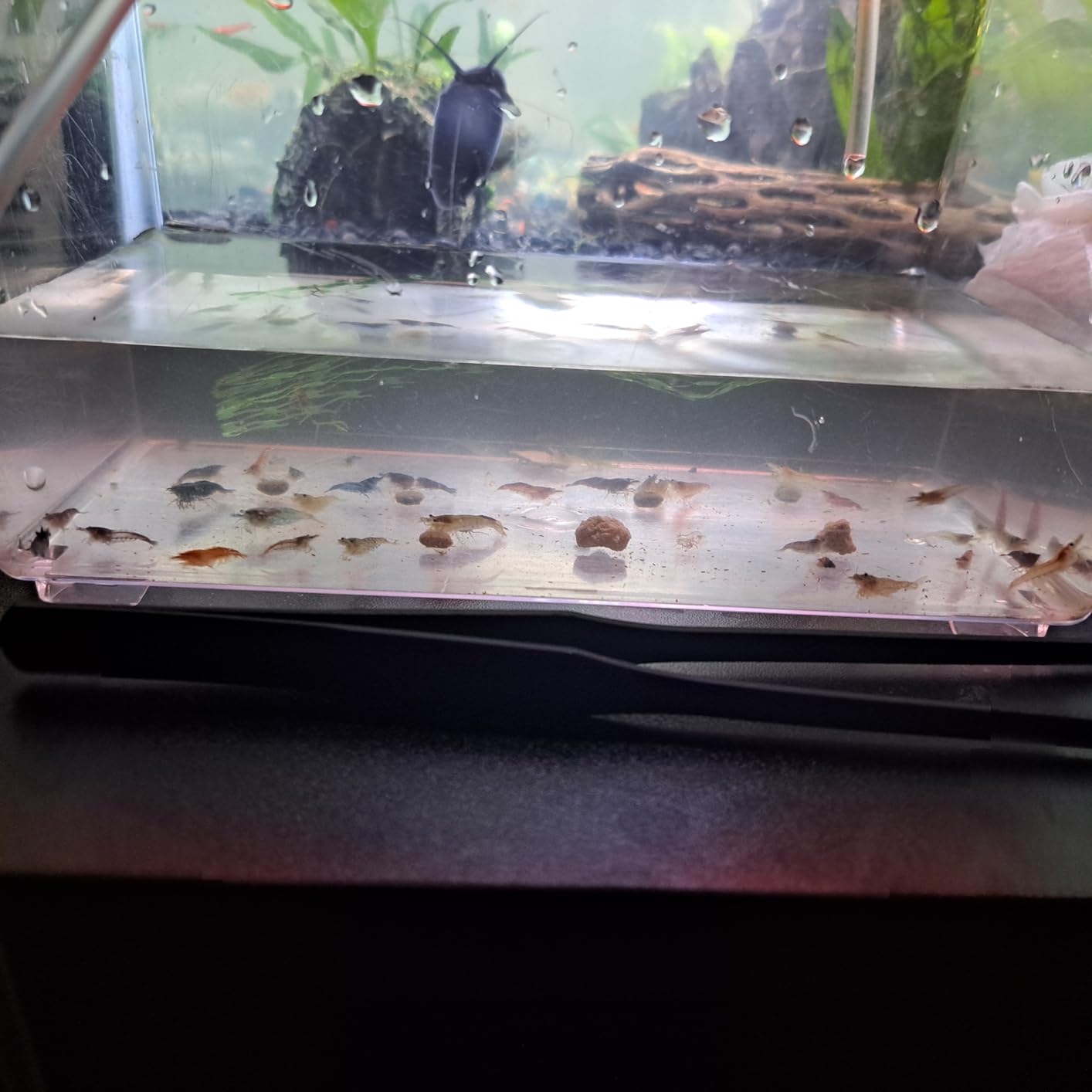
The breeding success has been remarkable. Starting with 22 shrimp (they included extras), I now maintain a thriving colony of over 60 after four months. The genetic diversity produces interesting color combinations in offspring, though purists might prefer single-color colonies to maintain distinct strains. They're particularly effective on biofilm and soft algae that accumulate on plant leaves and driftwood.
Population management becomes necessary surprisingly quickly. These shrimp breed prolifically in good conditions, potentially overwhelming smaller tanks. While they're excellent algae eaters, a large colony may require supplemental feeding. They're also sensitive to copper-based medications, limiting treatment options if fish require medication.
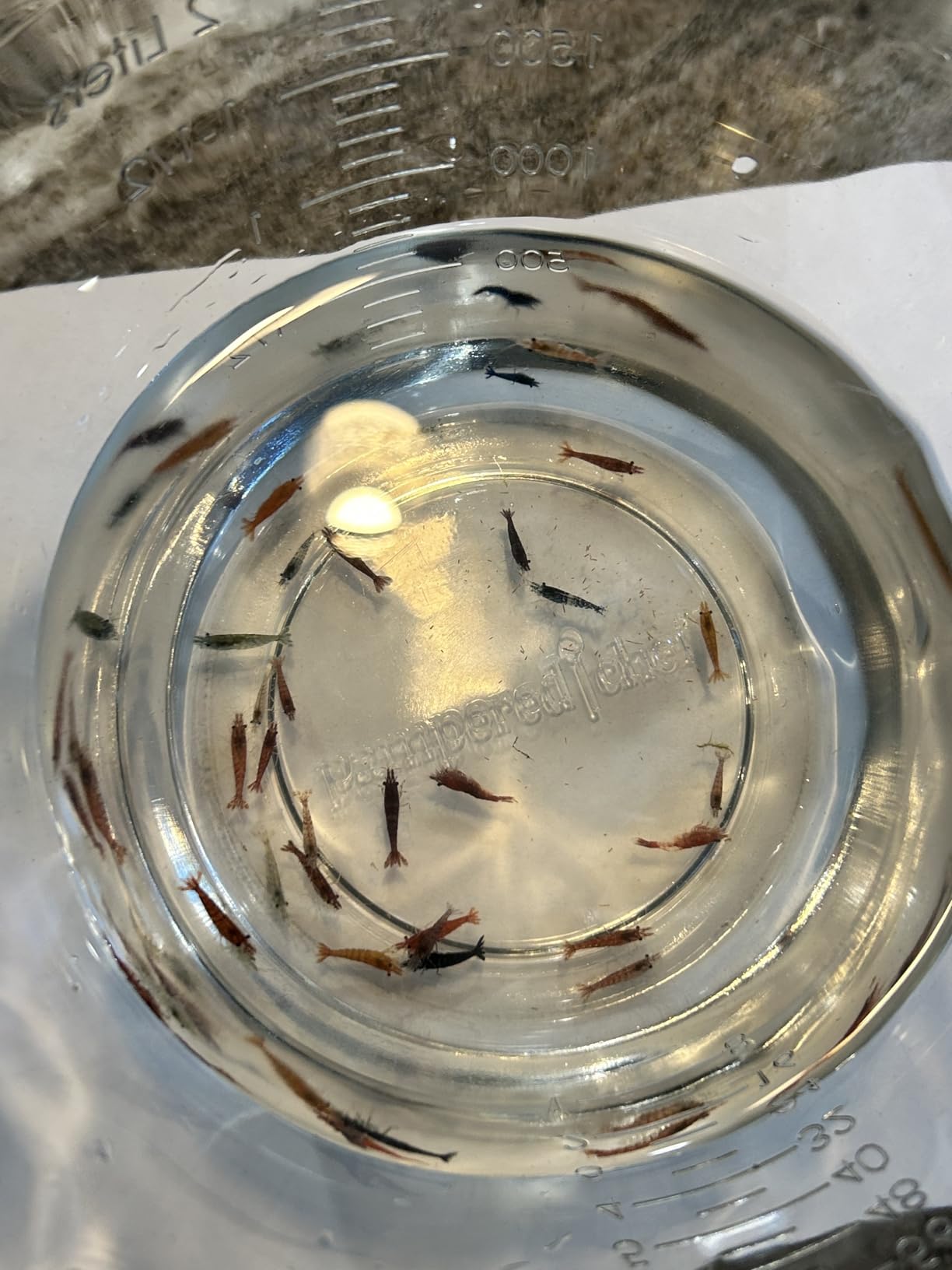
Bottom Line: The ultimate investment for establishing a self-sustaining cleanup crew. Perfect for planted tanks where their breeding ensures continuous algae control for years.
12. Ramshorn Snails Mix 10 Pack - Hardy Variety Collection
10 Live Ramshorn Snails by Dylfinds for…
Dylfinds delivers a solid variety pack of USA-bred ramshorn snails at $17.00. The focus on domestic breeding shows in their hardiness - these snails adapted to my tank parameters faster than imported varieties. The mix includes different patterns and colors, though not as vibrant as premium options.
These snails excel at comprehensive tank maintenance. They consume not just algae but also decaying plant matter, uneaten fish food, and even fish waste. This broader diet makes them superior cleaners for established tanks with diverse debris. The variety of patterns - including some leopard-spotted individuals - adds visual interest while they work.
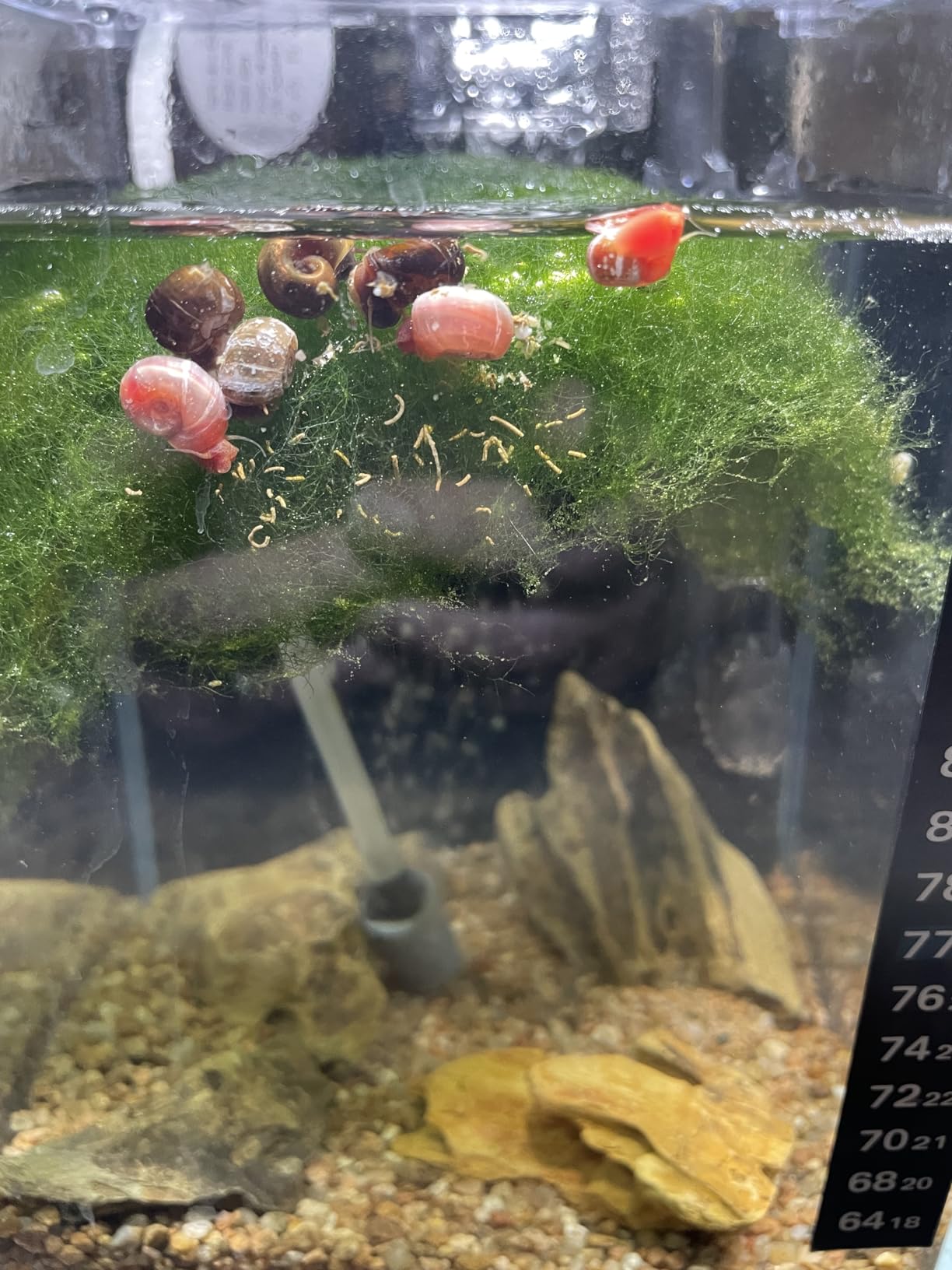
Plant safety is a major advantage. Despite some misconceptions, these ramshorns only eat dying or dead plant material, leaving healthy plants untouched. In my planted tank, they actually improved plant health by removing decaying leaves before they could harbor harmful bacteria. Their ability to reach tight spaces between plants and decorations surpasses larger snails.
The primary complaint involves size at delivery. Most arrive pea-sized or smaller, requiring weeks to reach effective cleaning size. Rapid reproduction can also overwhelm smaller systems - I recommend starting with just 5 in tanks under 20 gallons. Some customers reported receiving fewer than ordered, suggesting quality control issues.
Bottom Line: Excellent for aquarists wanting hardy, adaptable cleaners that handle diverse tank debris. Best suited for established tanks where their comprehensive cleaning abilities shine.
Which Algae Eater for Your Algae Type?
Through extensive testing, I've mapped which species excel against specific algae types. Green algae, the most common problem, responds best to nerite snails and otocinclus catfish. These species have specialized rasping mouths that efficiently strip green film from glass and decorations. For persistent green spot algae, mystery snails and apple snails possess stronger rasping power that breaks down these tougher deposits.
Brown diatom algae, typical in new setups, gets demolished by ramshorn snails and Malaysian trumpet snails. Their softer mouths are perfectly suited for this powdery algae type. I've watched ramshorn snails clear entire tanks of brown algae in days, while other species largely ignore it. Shrimp also excel here, using their tiny appendages to pick diatoms from places other cleaners can't reach.
Black beard algae, the nightmare of many aquarists, requires specialized attention. While most algae eaters avoid it, certain species show promise. Siamese algae eaters (true SAEs, not the Chinese variety) will consume young black beard algae growth. Florida flag fish also show interest, though neither completely eliminates established infestations. Prevention through proper CO2 and lighting remains more effective than biological control for this challenging algae.
Hair algae and string algae need the dedicated attention of shrimp, particularly amano shrimp. Cherry shrimp help but lack the size and appetite of amanos. I've witnessed groups of amano shrimp systematically clear hair algae from plants where fish and snails couldn't access. For biofilm and surface scum, no species matches the efficiency of mystery snails, which actually feed at the water's surface, consuming protein film that others ignore.
Frequently Asked Questions
How many algae eaters do I need for my tank?
I recommend one algae eater per 10 gallons as a starting point, adjusting based on algae levels and species chosen. For example, a 30-gallon tank works well with either three otocinclus, two mystery snails, or 10-15 cherry shrimp. Overstocking initially helps control algae faster, then populations can be reduced once under control.
Will algae eaters survive on algae alone?
No, supplemental feeding is essential once they've cleared existing algae. I learned this lesson the hard way when my first otocinclus slowly starved. Now I provide algae wafers twice weekly, blanched vegetables like zucchini, and specialized foods like Repashy gel food to ensure proper nutrition.
Can different algae eater species be kept together?
Absolutely! I've found mixed species tanks most effective. Combining shrimp, snails, and appropriate fish creates comprehensive coverage. My 55-gallon tank successfully houses cherry shrimp, nerite snails, and otocinclus together, each targeting different surfaces and algae types without competition.
Do algae eaters work in new tank setups?
Wait at least 4-6 weeks before adding algae eaters to new tanks. They need established biofilm and algae growth to survive. Adding them too early to pristine tanks often results in starvation. I always ensure visible algae growth before introduction.
Which algae eaters are safe with baby fish?
Otocinclus, nerite snails, and cherry shrimp are completely fry-safe. They ignore fish eggs and babies entirely. Avoid Chinese algae eaters, larger plecos, and even some mystery snails which might consume eggs. I use otocinclus exclusively in my breeding tanks.
How do I control algae eater populations?
For snails and shrimp that breed in freshwater, population control happens naturally through food limitation. Once algae is consumed, reproduction slows. For more active control, I remove egg clutches (mystery snails) or occasionally sell/trade excess shrimp to local hobbyists or stores.
What temperature range do algae eaters need?
Most thrive between 72-78°F, though specific requirements vary. Malaysian trumpet snails tolerate 65-85°F, while otocinclus prefer 72-75°F. I maintain my community tanks at 75°F, which accommodates all common algae eating species comfortably.
Will algae eaters clean cloudy water?
No, algae eaters target surface algae, not suspended particles causing cloudiness. Cloudy water usually indicates bacterial blooms or suspended debris requiring improved filtration or water changes. However, some species like Malaysian trumpet snails help prevent cloudiness by consuming debris before it decomposes.
Final Thoughts
After testing these 12 algae eaters extensively, I can confidently say that success comes from matching species to your specific needs. The Neocaridina shrimp earn my editor's choice for their combination of beauty, breeding potential, and tireless algae consumption. For budget-conscious aquarists, the ramshorn snail 9-pack delivers exceptional value and self-sustaining cleaning power.
Large tank owners should seriously consider the common pleco at its current 73% discount, understanding the long-term commitment required. Meanwhile, planted tank enthusiasts will find otocinclus catfish worth every penny of their premium price for guaranteed plant safety. The key is starting with appropriate expectations and providing proper supplemental care once your algae is under control.
Remember that algae eaters are living creatures requiring proper care beyond their cleaning duties. They need stable water parameters, appropriate tank mates, and supplemental feeding once algae depletes. By selecting the right species and providing proper care, you'll enjoy a cleaner, healthier aquarium with far less manual maintenance. The initial investment in quality algae eaters pays dividends through reduced cleaning time and improved tank aesthetics for years to come.













